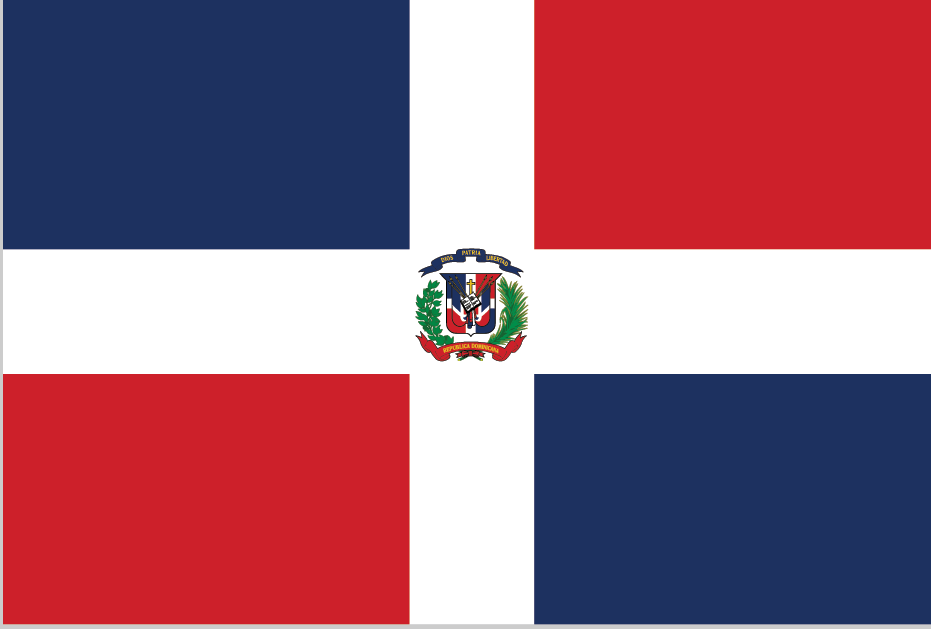
Sustainability Efforts
Country: Dominican Republic
Explore sustainability efforts in the Dominican Republic. The United States Environmental Protection Agency (“EPA”) said it well when they state:
“Sustainability is based on a simple principle: Everything that we need for our survival and well-being depends, either directly or indirectly, on our natural environment. To pursue sustainability is to create and maintain the conditions under which humans and nature can exist in productive harmony to support present and future generations.”
About Dominican Republic
The Dominican Republic is a country located on the island of Hispaniola in the Caribbean region. It is known for its stunning beaches, diverse landscapes, and vibrant culture. The country offers a mix of modern resorts and charming colonial cities such as Santo Domingo, the capital, which boasts historical sites dating back to the time of Christopher Columbus. The Dominican Republic is also home to the Caribbean’s highest peak, Pico Duarte, as well as lush national parks and protected areas. The country has a rich blend of African, European, and indigenous Taino cultures, which is evident in its music, dance, and cuisine. The Dominican Republic is a popular tourist destination, attracting visitors with its warm climate, friendly people, and a wide range of outdoor activities. Sustainability efforts in the Dominican Republic will enhance the country’s future.
Sustainability Efforts
Toggle each button below to “open” and “close” the presented data.

Poverty: The Dominican Republic has implemented various poverty reduction programs to address the issue of poverty within the country. These programs aim to improve access to basic services, enhance livelihood opportunities, and provide social assistance to vulnerable populations. The upper middle-income poverty rate (US$6.85 in 2017 ppp per day) is expected to continue declining in 2023 at 21.6 percent.

Hunger: Efforts to combat hunger in the Dominican Republic include promoting sustainable agriculture, supporting small-scale farmers, and investing in food security programs. The government has implemented initiatives to enhance agricultural productivity, improve access to nutritious food, and address food insecurity in vulnerable communities.

Healthcare: The Dominican Republic has made significant progress in improving healthcare services and expanding access to quality healthcare. The government has invested in healthcare infrastructure, increased the number of medical professionals, and implemented health insurance programs to ensure affordable healthcare for its citizens.

Education: Education is a priority in the Dominican Republic, and the government has taken steps to improve access to quality education for all. Investments have been made in educational infrastructure, teacher training, and curriculum development. Efforts are focused on reducing educational disparities and improving literacy rates.

Gender Equality: The Dominican Republic is committed to promoting gender equality and empowering women. The government has implemented policies and initiatives to address gender-based discrimination, enhance women's participation in decision-making processes, and promote equal opportunities in education and employment.

Clean Water Sanitation: The Dominican Republic has undertaken initiatives to improve clean water access and sanitation services. Investments have been made in water infrastructure projects, such as water treatment plants and distribution systems, to provide safe and reliable water to communities. Efforts also include promoting hygiene practices and raising awareness about the importance of clean water and proper sanitation.

Affordable Clean Energy: The Dominican Republic is actively promoting the development of affordable clean energy sources. The country has invested in renewable energy projects, including wind and solar power, to reduce its reliance on fossil fuels. These initiatives contribute to both environmental sustainability and energy cost reduction.

Economic Growth: The Dominican Republic has experienced significant economic growth in recent years. The government has implemented policies to attract foreign investment, diversify the economy, and stimulate sectors such as tourism, manufacturing, and services. This has resulted in job creation and improved living standards for many Dominicans.

Industry Innovation: The Dominican Republic recognizes the importance of industry innovation for economic development. Efforts have been made to foster a culture of innovation, support research and development activities, and promote entrepreneurship. These initiatives aim to drive industry growth and competitiveness.

Reduced Inequalities: The Dominican Republic is working towards reducing inequalities and promoting social inclusion. The government has implemented programs to address disparities in access to essential services, improve living conditions in marginalized communities, and enhance social protection measures.

Sustainable Cities: The Dominican Republic is committed to building sustainable cities and communities. Efforts include urban planning that prioritizes environmental sustainability, infrastructure development that incorporates green technologies, and initiatives to promote efficient use of resources and waste management.

Responsible Consumption and Production: The Dominican Republic promotes responsible consumption and production practices. The government encourages recycling, waste reduction, and sustainable resource management. Efforts are underway to raise awareness about the importance of responsible consumption and production among the population.

Climate Action: The Dominican Republic is actively engaged in climate action to reduce greenhouse gas emissions, enhance climate resilience, and promote adaptation strategies. The government has implemented climate action plans and seeks to contribute to global efforts in addressing climate change.

Aquatic Environment: The Dominican Republic recognizes the importance of protecting its aquatic environment, including its coastal areas, coral reefs, and marine ecosystems. Efforts are focused on implementing measures to preserve and restore marine habitats, promote sustainable fishing practices, and address pollution and plastic waste management.

Natural Environment: The Dominican Republic is known for its rich biodiversity and natural landscapes. The government has established protected areas, national parks, and reserves to conserve its natural environment. Initiatives are in place to promote sustainable land management, biodiversity conservation, and eco-tourism.

Peace and Justice Institutions: The Dominican Republic upholds the rule of law and maintains institutions that ensure peace, justice, and human rights. Efforts are made to strengthen the justice system, promote accountability, and protect the rights of all citizens.

Partnerships for the Goals: The Dominican Republic actively engages in partnerships with international organizations, donor countries, and civil society to achieve the Sustainable Development Goals. Collaboration and cooperation are crucial in addressing environmental and social challenges. The country seeks to leverage partnerships to mobilize resources, share knowledge, and implement effective strategies for sustainable development.



